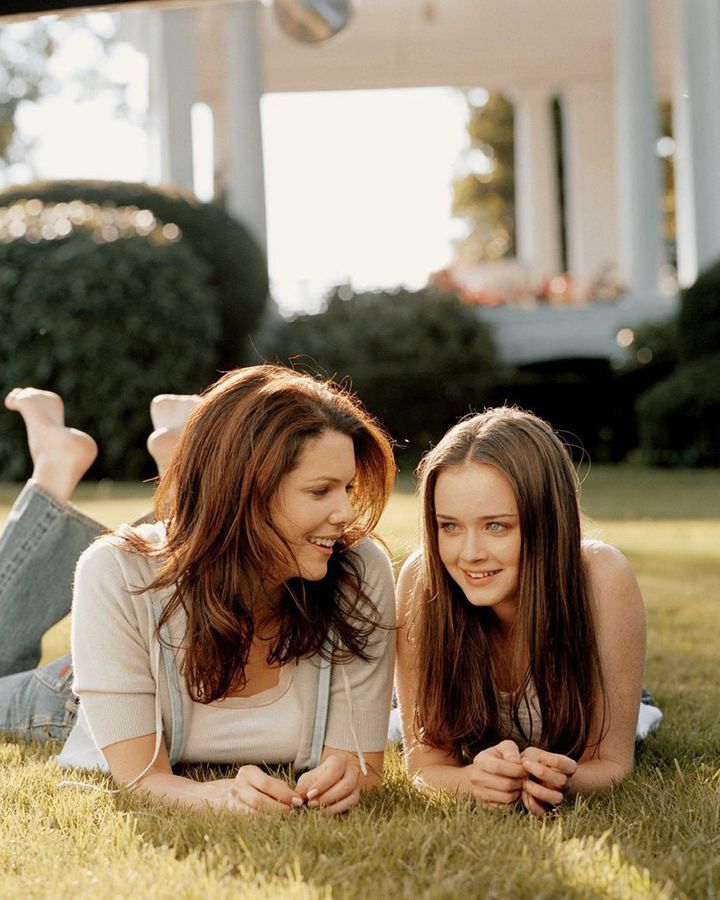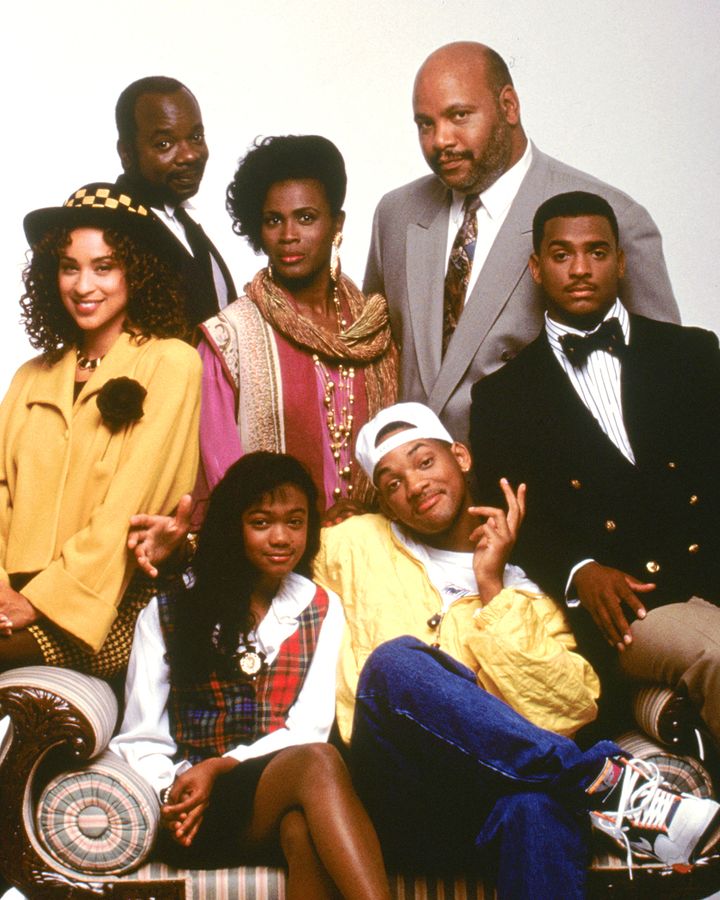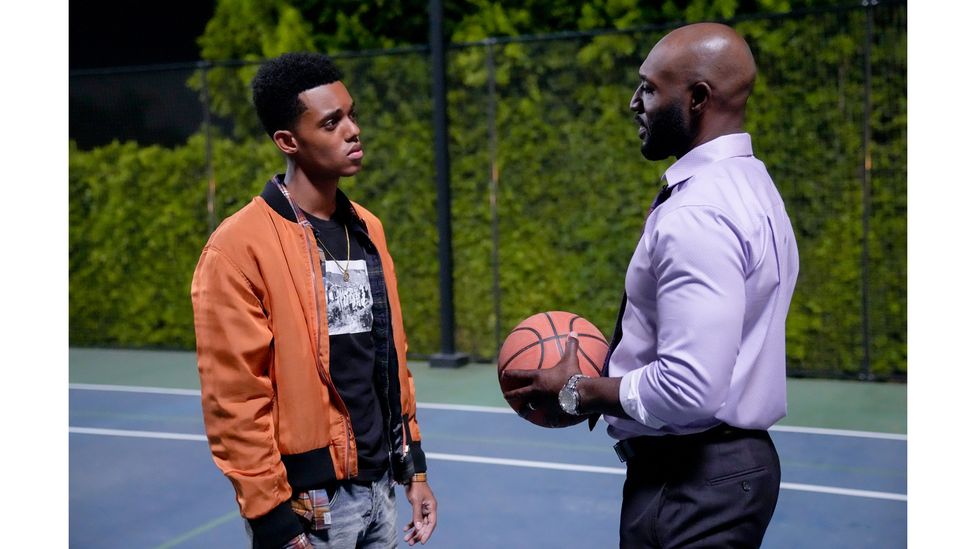The secret to successful TV reboots

Before the days of streaming services, my favourite after-school activity was running home to catch an episode of Gilmore Girls on TV. The original series aired from 2000 to 2007, and all seven seasons were shown on rotation on British terrestrial TV until 2012. In 2016 new episodes were set to be released.
More like this:
– Netflix’s ‘fake heiress’ drama is a hit
– Ten shows to watch this February
– A TV medical drama like no other
Gilmore Girls: A Year in the Life was going to be perfect. It was a look into where the characters would be today, something I was especially interested in as the original series was left on a cliffhanger as a result of it being cancelled. Then in 2021, there was Gossip Girl. The hit show, which aired from 2007 to 2012, was given a reboot. In theory, I may have enjoyed the revival if it wasn’t attached to one of my favourite teen dramas of all time. For me, it failed to capture the magic that made me fall in love with the original, and appeared more interested in critiquing the dynamics of its predecessor. “The new Gossip Girl is less deliciously messy, and more a plain old mess,” one critic wrote at the time.

Gilmore Girls: A Year in the Life is one of several recent remakes of popular TV series (Credit: Netflix)
Over the past few years, there have been a number of remakes and announcements of popular films and TV shows. These include Cruella, He’s All That, Dune, West Side Story, Home Alone, a Grease spin-off, Will & Grace, Sex and the City, Oliver Twist and How I Met Your Mother. Reddit is teeming with people who are exhausted with this trend. “Is Hollywood running out of ideas?” a user asks. “I’m really so tired of reboots and remakes,” another adds. Some merely question whether there has ever been a reboot to get it right: “What’s a reboot or remake you’d actually like to see?” and “What reboot really got it right in your opinion?”
This recent resurgence comes as a result of the film and TV industries knowing that they can capitalise on something that already has a large number of fans. Pop culture expert and commentator Nick Ede says it is a way for businesses to ensure money will still come in if the original shows and films they make are a flop. “A reboot or a remake is usually for a film that’s already been popular and has a large fan base, so will not be a financial risk for a studio to invest in,” he says. “The original Dune for instance made $31 million at the box office but cost $40 million to make so was a flop and financial disaster for the studio. However the reboot made over $300 million but cost $165 million to make, so was both a hit and money maker. It’s lazy perhaps but when it’s done well it’s refreshing.”
While some have found the trend off-putting, there are still some reboots that generate enthusiasm – and one in particular is provoking discussion right now. In 2019, self-taught independent filmmaker and commercial cinematographer Morgan Cooper reimagined the Fresh Prince of Bel-Air in a three-and-half-minute long experimental fan trailer that perfectly answered the question “what would the show have been like today if it was a feature film instead of a sitcom?” In the trailer, the lead’s mother says: “I’ve done my best, Will, it’s time for a change. You’re going to Bel-Air to live with your uncle and your auntie.” It’s a line that would have been familiar to fans of the original.
Cooper could not afford to make an entire film, which is how he settled on a trailer, but it was clear that the idea was not to use the familiar technique of bringing the old cast back to our screens or creating a continuation of what was done before. The idea was to produce something new with a similar premise, that would entice those who loved the original as well as people who had never seen it. Will Smith eventually got wind of the YouTube trailer, and the remake of the 90s show became a reality – with Morgan Cooper on board as co-writer and co-executive producer, along with showrunner Chris Collins.
A deeper look
In the Peacock original series Bel-Air, which airs this month, the 20-minute episodes of the sitcom are replaced by one-hour-long dramas, which take a deeper look into class, race and different forms of privilege. “There were really iconic scenes that are unforgettable, that strayed away from sitcom conventions, and just went purely into dramatic acting,” Cooper says. That being said, scenes that made us question the society we live in weren’t at the forefront of the Fresh Prince. It was more about the laughs that an odd family dynamic could offer.

The original 90s sitcom Fresh Prince of Bel-Air was hugely popular (Credit: Warner/ Quincy Jones)
But the fact that the new version is different is what makes it a successful remake. Bel-Air respects the original sitcom, while also acknowledging a new era. It’s something that’s key to creating a reboot that works. Ste Bergin, filmmaker and lecturer at University of Salford, tells BBC Culture: “Everyone has a certain Bond they most feel attached to,” noting that he grew up with Pierce Brosnan on the big screen. “It’s safe to say that by the time Casino Royale came about, the world was in a bit of a different place – 9/11, the rise of the internet etcetera. The world we lived in simply didn’t have a need for goofy world-destroying villains and gadgets, but it did still have a need for action heroes. Casino Royale is still Bond, but it’s a different Bond. The franchise was respected, but it moved on and grew with its gritty reboot.”
This is something Gilmore Girls: A Year in the Life failed to do. Most notably, there was a scene where one of the stars called her neighbour “Back Fat Pat”. At the time of the original, fat jokes were a reflection of a society in which criticism of people’s weight and body was rife – but since the show’s last episode in 2007, that’s evolved. Conversations around body positivity became commonplace, and by 2012 plus-size influencers were champions. Consequently, A Year in the Life felt outdated and in poor taste.
Bel-Air, on the other hand, has moved on from the original. The show manages to home in on the parts of Fresh Prince that made it a beloved sitcom. Will is still smooth and well-liked by his friends, women and the people around him; He still gets into trouble with a gangster while playing basketball; and his mother still feels forced to send him to Los Angeles to live with his affluent relatives for his own good. But it also brings to light the parts of the original that a 90s comedy was unable to explore in detail.

Bel-Air feels current because it explores themes around race and class not addressed in the original version (Credit: Peacock)
The dynamic between the characters and their environment are not the same. For example, Will (played by Jabari Banks) and his cousin Carlton (Olly Sholotan) clash more regularly. Carlton is determined to fit in with his privileged peers, where he is the only black man, something the working-class Will disrupts. Will is also initially more out of place (and in more overt danger) than he originally was. Hillary (who was the rich “airhead” cousin in the original) is now a savvy and strong-willed influencer. The sacrifices of Uncle Phil and Aunt Viv to give their children the advantages that they themselves did not have are also more apparent.
In other words, the show feels new, and is full of critiques about class and privilege that feel relevant to 2022. “Stories cannot just piggyback on their former glory. Every film or series remake should have new audiences in mind,” explains Giuliano Papadia, CEO of the television production company BlackBox Multimedia. “They might not spot niche references, but they will share that burst of adrenaline with original fans.”
Dr Charlotte Stevens, a lecturer at Birmingham City University whose research interest is television and fandom studies, agrees. “There is a fine line to walk, because the reboot needs to be its own programme that stands on its own, and doesn’t make the audience think that they’d much prefer to be watching the original instead.” This is why the new Bel-Air works. It’s not trying to be something that it is not, and that it will never be – the original Fresh Prince.
Bel-Air is available on Peacock in the US, and on Now in the UK.
Love film and TV? Join BBC Culture Film and TV Club on Facebook, a community for cinephiles all over the world.
If you would like to comment on this story or anything else you have seen on BBC Culture, head over to our Facebook page or message us on Twitter.
And if you liked this story, sign up for the weekly bbc.com features newsletter, called The Essential List. A handpicked selection of stories from BBC Future, Culture, Worklife and Travel, delivered to your inbox every Friday.








